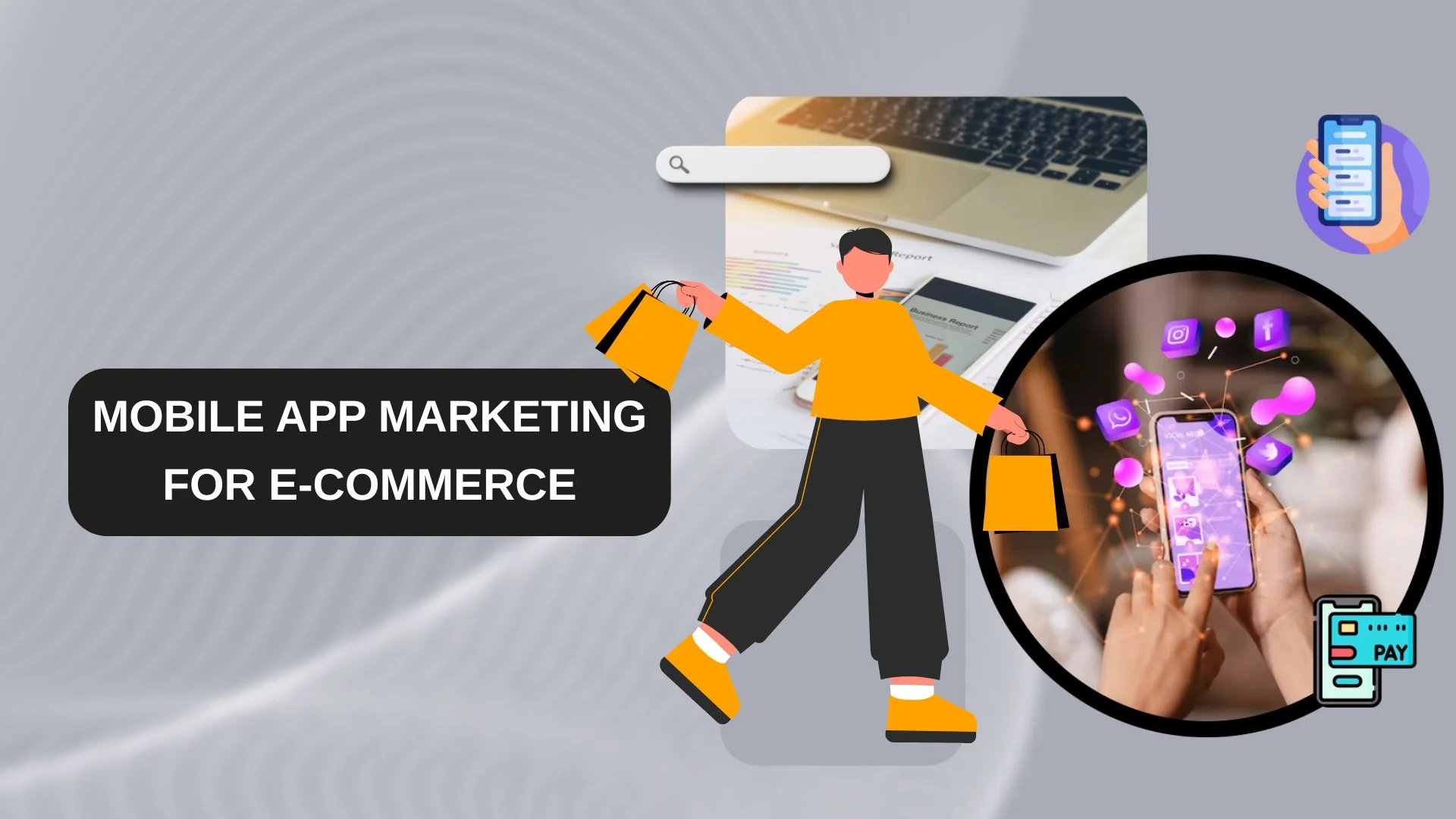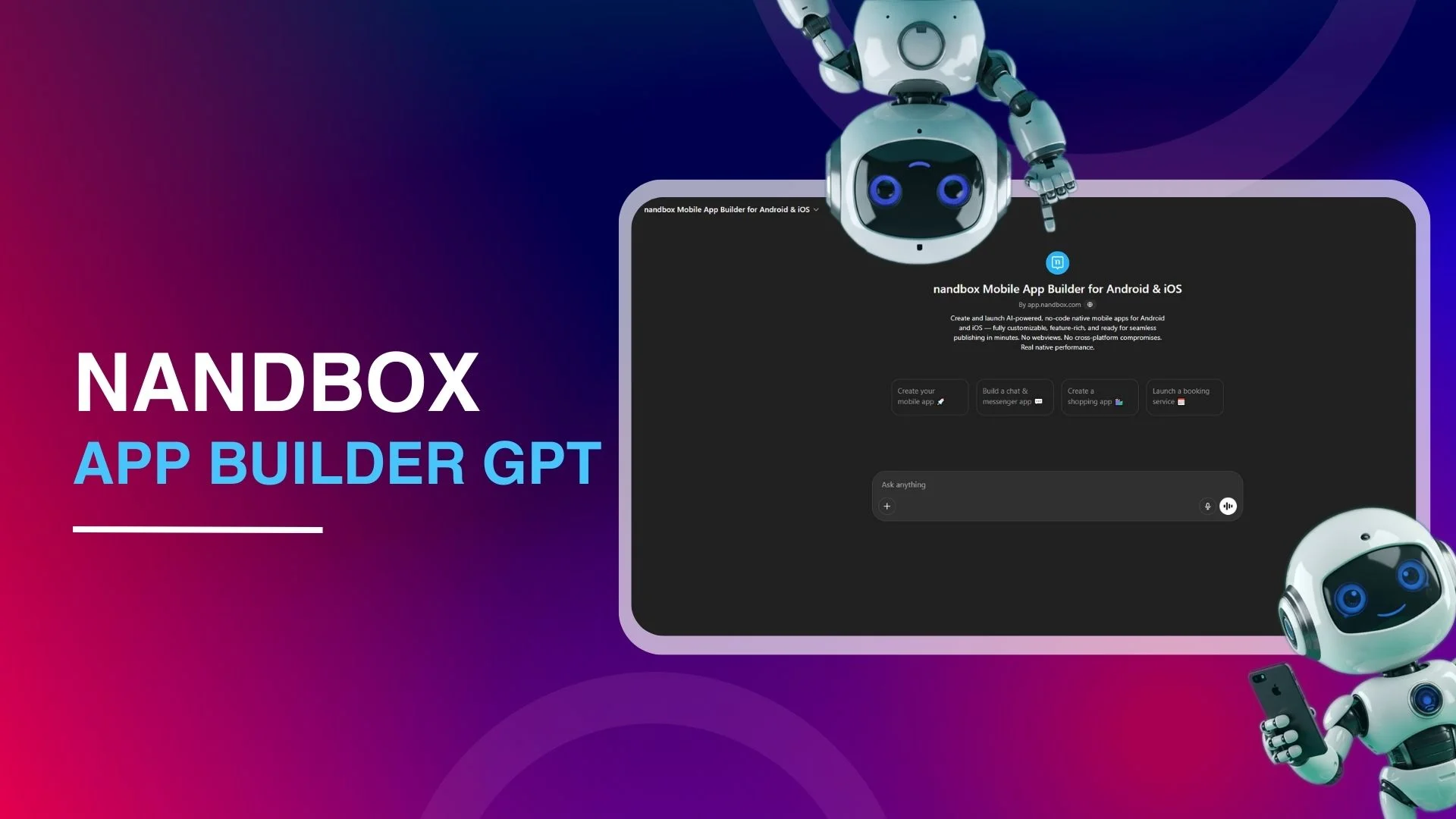Blue Mobile, in other words, has become a vital asset in developing experience. It improves touch pants, and drives results for any company, such as sales, in the super-fast growing digital world of commerce. Mobile app marketing becomes one of the frameworks in any e-commerce strategy. It extends the reach of the business to directly connecting with consumers on the go through their hand-held devices. But it is competitive in itself, and marketing strategy determines whether success comes. This will be a discussion of premium strategies that e-businesses can rely on for their mobile app marketing.
Before exploring mobile app strategies for e-commerce, it’s crucial to understand why they have become so essential for online businesses.
The Importance of Mobile Apps in E-commerce
Enterprises in mobile apps for e-commerce business are magnifying leaps and bounds. That’s because of the changing shopping behavior of consumers toward mobile devices. After studies were done, it has come to be known that over 70% of global e-commerce sales are made from mobile devices. These numbers keep increasing with every passing day. For businesses, this change is just an opportunity to offer a highly personalized, efficient, and united experience for their customers in the world of shopping.
Mobile applications are the best platform for businesses to offer special features. These include push notifications, effortless checkouts, and personalized product recommendations. Such features accentuate the user experience and favorably influence customer retention per sales.
Key Strategies for Mobile App Marketing in E-commerce
Having understood the power of mobile applications on e-commerce, now let’s explore some effective strategies applicable in the mobile app marketing space.
- Optimize Your App Store Listing: Making sure your product is discoverable in app stores is the first step of mobile marketing for apps. For most potential customers, app store listing is the contact point with your enterprise. So much emphasis must now go into optimizing that you stand out.
- App Title and Description: Your app title and description should be clear, concise and reflect the value that your app provides. Keywords relevant to your target audience and the highlight key features of your app.
- Visuals: High-quality visuals, such as app screenshots and videos, are the best forms of attention-grabbing for potential users. It should show-off the app’s main features and how it will benefit the user.
- User Reviews: Positive user reviews are some of the most convincing forms of social proof. For a would-be user to be tempted into securing a download of your app. Have all satisfied customers leave reviews, and smoothly take care of all negative feedback.
1. Leverage SMS Marketing to Complement Your Mobile App Strategy
SMS marketing is the fastest and most effective way to reach customers directly on their mobile devices. Businesses can send time-sensitive promotions, updates, and reminders to customers through text messages. It has a far better open rate than emails or any other communication channel. Expanding the SMS marketing strategy to the mobile app strategy can also be used as a direct means to increase customer engagement and retention. For instance, a dependable SMS marketing solution should enable sending well-targeted messages to users based on behavior using the app, past purchases, and geographic location. For example, offers of discount codes can be sent to users who abandoned carts or information about sales that are available for a limited time.
With SMS marketing combined with push notifications and in-app messaging, the business will have an integrated marketing strategy that keeps the users engaged with their app at all times and contains calls to purchase.
2. Use Push Notifications to Keep Users Engaged
Push notifications are a terrific marketing strategy for apps. That means they can communicate information with users timely and personally via the device at hand, while the user may not even be in the app. Push notification channels can do many things, including:
- Promotions and discounts are time-sensitive offers and last-minute discounts to entice users to spend.
- Product Recommendations—The data can be used for insights to suggest certain products likely to fit a user’s preferences or past purchases.
- Abandoned-cart Reminders—With push notifications, users are reminded about items left in the shopping carts and this can tremendously increase conversions.
So, even though push notification campaigns can give a lot of revenue when applied wisely, wrong use can cause high uninstall rates. Using notifications wisely means sending only relevant and personalized notifications that give some value to the user.
3. Create A Seamless And Personalized User Experience
The user experience (UX) is important for mobile app marketing success. A simple-to-navigate app that creates a personalized experience lends to high customer satisfaction and purchase propensity.
According to this trend, personalization is undoubtedly the best way to improve user experience. Mobile applications can thus leverage customer data about browsing history, location, and preferences to present highly personalized recommendations, promotions, and content, making the user feel much closer to the patient and increasing chances of conversion.
Besides personalization, another aspect of the user experience to bear in mind is ease of navigation. The UI should be clean and easily understood and should remain responsive. In its quest of smoothing the shopping experience to the utmost. That is an app which is not user-friendly,-difficult and frustrating to navigate-will most certainly see high rates of uninstallation.
4. Implement Omnichannel Marketing Strategies
In this e-commerce milieu, customers flock to a brand from different channels. Like mobile apps, websites, and even social media and email. An effective mobile application marketing strategy would thus include an appeal to an omni channel marketing platform enabling businesses to reach their customers across all of the above-mentioned touchpoints.
Omnichannel marketing in retail is about creating a similar experience while customers shop through a mobile app, browse a store, or talk to someone online. It would enable businesses to gather fruitful channel-wide data and use it effectively to fine-tune their marketing methods and reach customers otherwise.
For example, a customer would add products onto the mobile application and not purchase them. The businesses could follow it with an email reminder or a push notification if such an incident happened. This sort of integrated approach keeps businesses at the front of the mind and heightens opportunity conversion.
5. Use Analytics Data for Decision Making
Data analytics is an important tool under mobile app marketing. By analyzing user behavior, it is possible for businesses to have better insight on how customers use their apps and get information regarding extra features that must be added or any other improvement areas. For example, monitoring session duration, screen flow, and conversion metrics can help businesses evaluate which features are performing well and which need to be optimized. Besides that, through data analytics, customer preferences can be unearthed so that personalized marketing and relevant offers or products can be made available to businesses’ customers.
Integrating data analytics tools into your mobile app can provide actionable insights that can inform your marketing decisions, helping you fine-tune your strategy for maximum impact.
6. Invest in App Install Campaigns
Application installation campaigns are very competitive and essential strategies for attracting potential users for cell phones. A driving factor for these campaigns is the establishment of advertising channels such as Google Ads, Facebook, or Instagram that will promote paid advertising with the target audience downloading the app to the device. The target audience to be reached by these apps is likely to be interested in the information in the app and encouraged by downloading the app on their internal devices.
The app install campaigns should profile the target audience demographically, or include their interests and behavioral activities. If targeted accurately, there are better chances to draw in actual users who are genuinely interested in your products or services.
Combine app install campaigns with other strategies like referral programs or incentives for even greater installs and an improved user acquisition rate.
7. Encourage User Reviews and Referrals
User Reviews and referrals will be critical in framing the mobile app marketing strategy. Positive reviews will actually create trust between prospective customers and your app. This in turn will also positively affect the ranking of your app in app stores. Hence visibility to users searching for similar apps.
Entice satisfied customers to write a review by offering discounts or loyalty points. Besides, establish a referral program that rewards users for referring friends and family to the app. This will create a viable loop where newcomers are perpetually brought by the older customers.
Conclusion
For the purposes of increasing engagement, enhancing sales, and developing brand loyalty, mobile app marketing is one highly effective tool to any e-commerce business. Implementing those strategies stated above, such as app store listing optimization, SMS marketing, triggering push notifications, creating personalized user experiences, and utilizing omnichannel marketing, can make any mobile app marketing regime more effective and sustainable over time.
Additionally, using an SMS marketing solution integrated with an omnichannel marketing platform with a mobile app strategy engagement could add extra dimensions to your approach. That makes the engagement more targeted and coherent. More personalized and user-friendly would be the attributes of e-commerce. With these, customers have a built relationship with them, leading to high conversion rates and increased customer lifetime value.
Thus, having all innovations, data-based decisions, and value for customers will ensure that e-commerce mobile apps adapt to changing scenarios and generation of the airwaves. This will keep the forefront competitive. Best practices will make your business poised toward winning against other businesses in mobile app marketing for e-commerce.
nandbox App Builder
nandbox App Builder is a revolutionary tool for creating a robust mobile application without any coding requirements. It enables enterprises—particularly in the dynamic realm of e-commerce—to develop fully operational, aesthetically pleasing applications. The applications establish direct connections with their clientele. Using nandbox, you can effortlessly incorporate functionalities such as push notifications, in-app messaging, and streamlined checkout processes to enhance engagement and increase revenue. Regardless of whether you are initiating or seeking to expand your online enterprise, nandbox provides the requisite flexibility and innovation to maintain a competitive edge.






